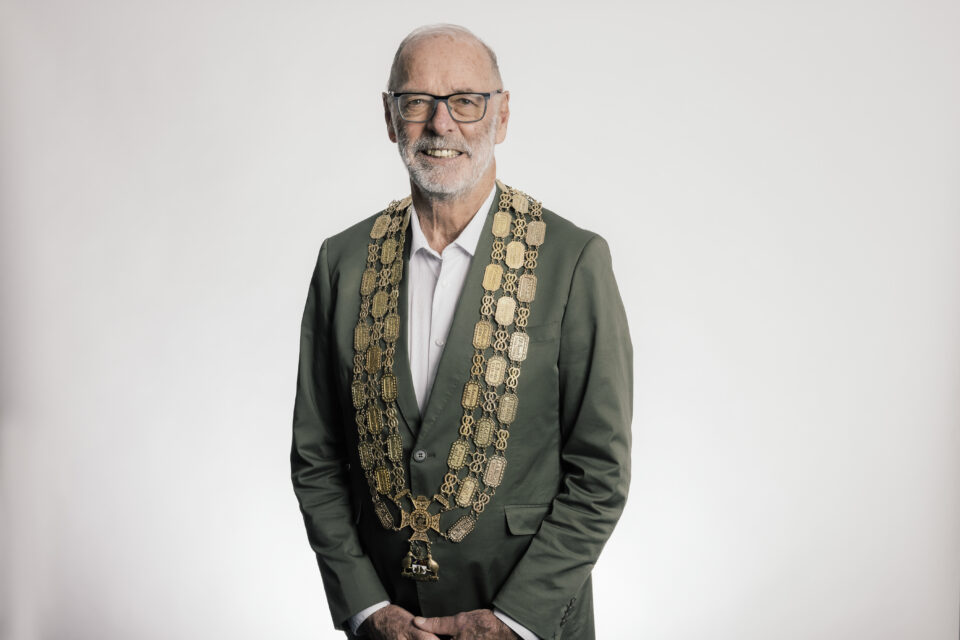By Wayne Brown, Mayor of Auckland.
Auckland’s system of planning transport is broken and is in desperate need of fixing. It’s too complex, with too many parties involved, and is not properly joined-up.
The Ministry of Transport, Auckland Transport, Waka Kotahi, Kiwirail, Auckland Light Rail, City Rail Link and more – all have a say.
Agreements made between the Council and the Crown, including the Mayor and Minister can be contradicted and relitigated every step of the way. So, we announce grand plans every three years as part of the Auckland Transport Alignment Project (ATAP) only to see them ignored.
Politicians are elected to set direction, but in Auckland we have no real say over which transport projects proceed and which do not. I don’t need to remind anyone that this is a major source of frustration for Aucklanders.
Transport accounts for more than 30 percent of Auckland Council’s budget over 10 years. Despite this, Auckland Council is the only council in New Zealand that does not have a formal role in preparing and approving the strategic direction for transport and allocation of funding to support that direction.
Too many things we do and spend money on are dictated to us, and too much time is wasted on mega projects imposed by Wellington rather than the smaller-scale initiatives that will really help Aucklanders get around easier.
I am proposing a local bill which includes two ways of fixing these issues.
First, the Regional Land Transport Plan needs to be developed and approved by Auckland Council, rather than by a committee largely comprising of Auckland Transport board members. This will follow the Regional Transport Committee model used everywhere else in New Zealand.
Of course, Auckland Transport needs to be closely involved in that. Their expertise is important, and we will work constructively with them in delivering a better system. But even they have acknowledged that the governance and funding arrangements for Auckland are no longer working and have asked council to give serious consideration to how a more simplified, transparent, and robust planning and framework for Auckland can be created. We’ve acted on that.
Second, the proposed bill would establish a Joint Transport Committee between the Crown and Auckland Council to provide more integrated and efficient approach to decision making and funding across central and local government. We are not asking for more than our fair share of government funding, but rather want to ensure Aucklanders have a clear influence over which major transport projects get the green light, regardless of their funding source and which agency leads the project.
I am proposing a local [transport] bill which includes two ways of fixing these issues.
This committee will provide a legislative basis for Auckland Council and the Crown to agree to the Auckland Integrated Transport Plan, which will set the long-term direction for transport and ensure major projects are co-ordinated.
In support of that direction our council should be able to make other key regulatory decisions about the Auckland transport system that are currently held by the government, including setting parking fines. A one sizes fits all approach is not appropriate for transport matters across New Zealand, with rural and urban councils facing different issues.
In August, our Council’s Transport and Infrastructure committee voted to accept my recommendation that the council support legislation to fix the governance of Auckland’s transport system, including by taking the initiative to promote a local bill with a ready-made solution.
The Minister of Transport David Parker has already agreed with the need for change, and I am seeking support for these changes from all other political parties prior to the election.
The Minister of Transport and I have also recently confirmed our vision and priorities for an integrated transport plan, and at its heart is faster, less congested, more resilient, low carbon transport system for goods and people of Auckland.
Rapid transport is a key priority for the region and that includes speeding up buses, making the best of rapid transport projects that are underway and planning the next phase of the rapid transit network.
Other key priorities include optimising the existing network by working together to implement time of use charging to replace the Auckland Regional Fuel Tax and implementing dynamic bus lanes on key arterial routes to make buses and more reliable while reducing traffic management costs.
Building resilience into Auckland’s Transport system and completing and maximising the benefits of current projects will also be vital in delivering a faster, less congested, more resilient transport system for goods and people.
I’m sure other cities, towns and regions are facing similar frustrations with our transport planning system. I look forward to working with colleagues around New Zealand to come up with improvements that provide more local control and allow better recognition of the unique circumstances of each area.



